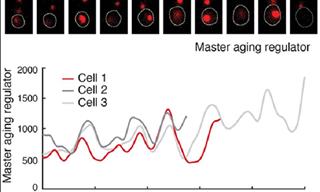A new study aims to find the kind of exercise that is best for Alzheimer’s prevention. Studies conducted on animals and humans have already shown that exercise can help with brain function. We know that doing coordination exercises can also help develop the brain and protect it from cognitive decline.
But none of these studies ever looked into the specific kinds of physical activity that would be best for preventing and possibly even treating cognitive decline. The EXERT study, published by the National Institute of Aging, sets out to find just that. It builds on previous evidence that shows aerobic physical activity has the power to preserve cognitive function.

The goal of the study is to see if "exercise can slow disease progression and cognitive decline by altering biological signs of Alzheimer’s in the brain." Alzheimer’s disease has a slow progression, and physical manifestations can usually be seen in the brain before we see symptoms. This slow progression holds the possibility to stall and even prevent dementia.
The study took place at 13 different sites in the US. 300 physically healthy participants aged 65 to 89, all suffering from Mild Cognitive Impairment, were divided into two groups. The first group performed balance exercises and stretches for 30 to 45 minutes 4 times a week. The second group performed high-intensity workouts of the same duration 4 times a week. During their workouts, they raised their heart rate to 75% of full capacity. Both groups worked out with a close trainer who made sure they keep up with the workout routine.
For the first 12 months of the study, the groups worked out together at their local YMCA. For the final six months of the trial, participants in both groups worked out alone.
At the beginning of the trial, and after every six months, participants took a series of tests:
⁃ Several memory tests
⁃ A brain scan to monitor brain size, blood flow, and structure
⁃ Blood and cerebrospinal fluid tests that detect Alzheimer’s progression.

Before the official study started, researchers conducted a simulation study. It was much like the final study but on a smaller scale. They found that the group that did high-intensity workouts showed greater improvement in executive function over the group that did low-intensity workouts. Neither group showed better short-term memory. Levels of a certain protein in the cerebral spinal fluid, associated with cognitive decline, fell in participants aged 70 and older.
Researchers hypothesize that memory improvement will come up only over longer periods. Therefore, they launched the 18-month-long trial. This trial is known to be one of the largest studies to examine the impact of intensity of an exercise on memory loss and cognitive decline. Studies conducted on animals have shown that exercise has several positive impacts on the brain:
⁃ Promotes growth and connections between cells
⁃ Immunizes brain cells against injury and toxicity
⁃ Increases growth factors and the number of new neurons
⁃ Supports larger and healthier existing neurons
⁃ Increases the size of the hippocampus - a brain region responsible for memory and learning.

In humans, however, we only know that exercise, in general, is good for the prevention of cognitive decline, but we don’t know for certain which type of physical activity would be best. Once we have that information, we would be able to prescribe a tailored lifestyle and exercise plan as a treatment for cognitive decline. It has the potential to be a cheap, accessible, and powerful treatment with minimal to 0 side effects.
The official results of this study will be published towards the end of January of this year (2022). You can read the results of the pilot trial here.
Sources: 1, 2, 3.
 Go to BabaMail
Go to BabaMail






















































